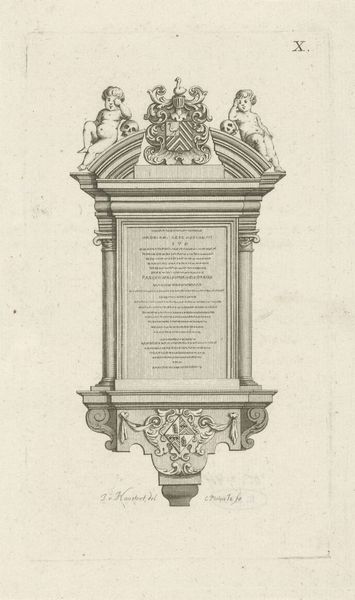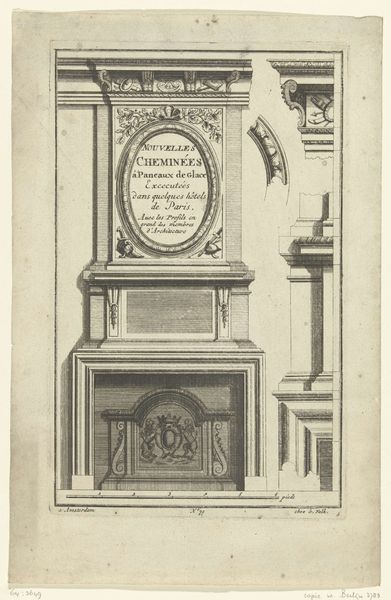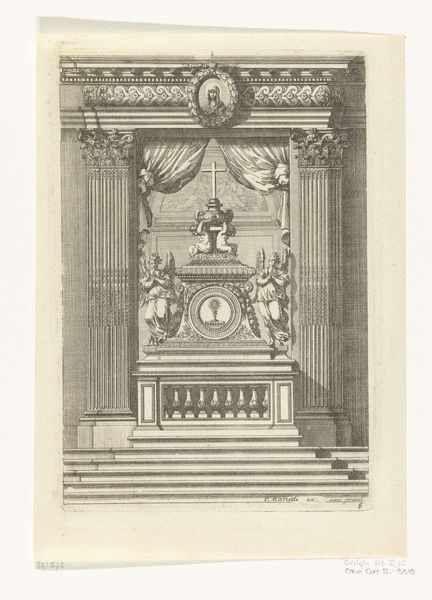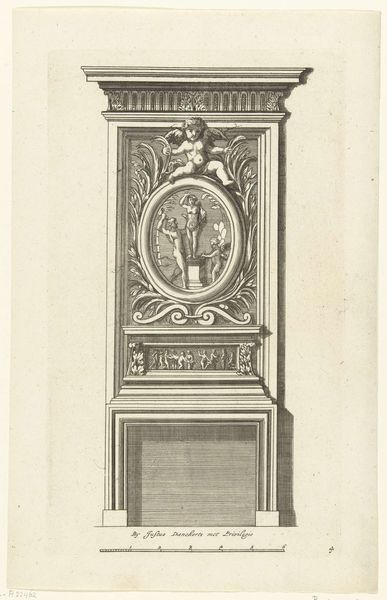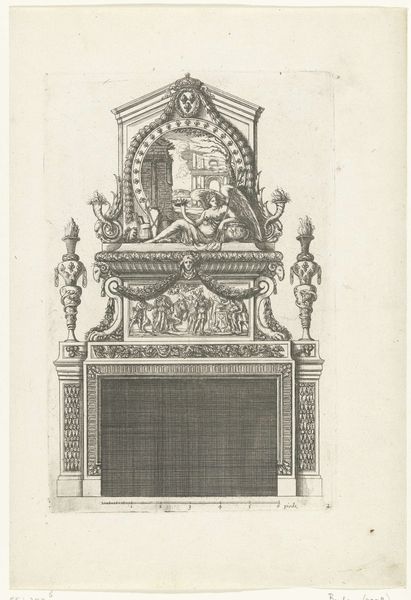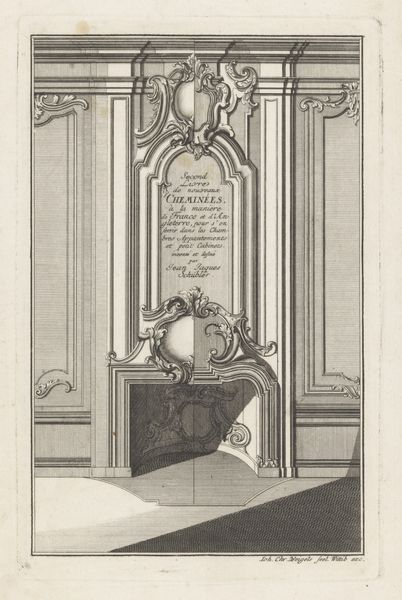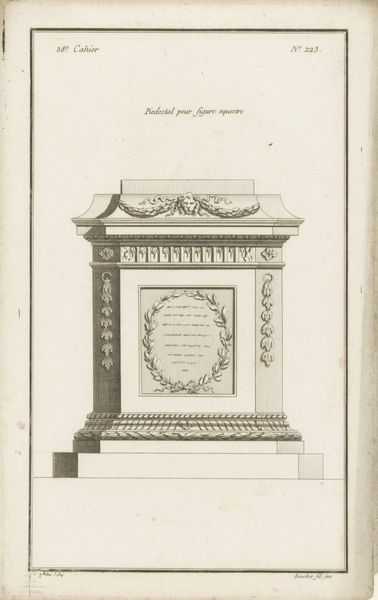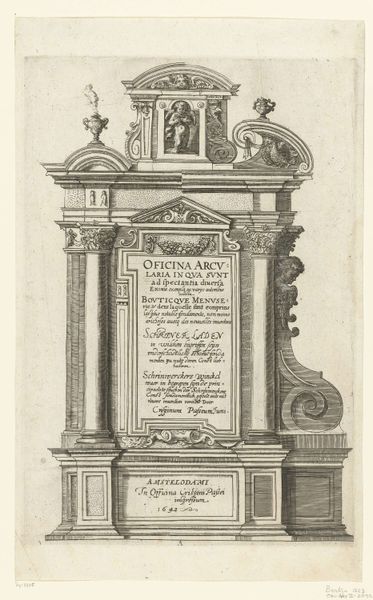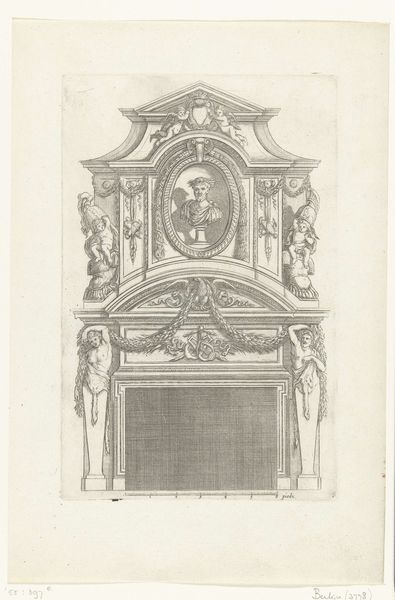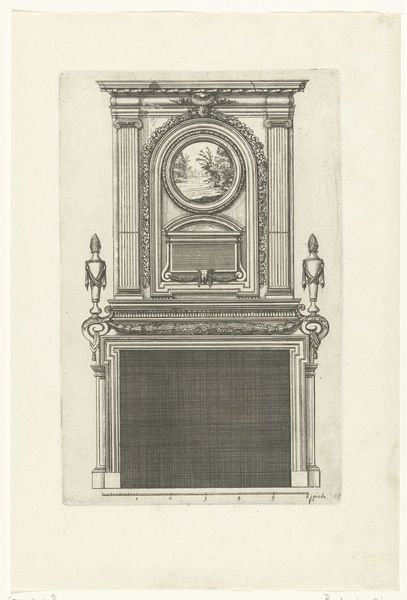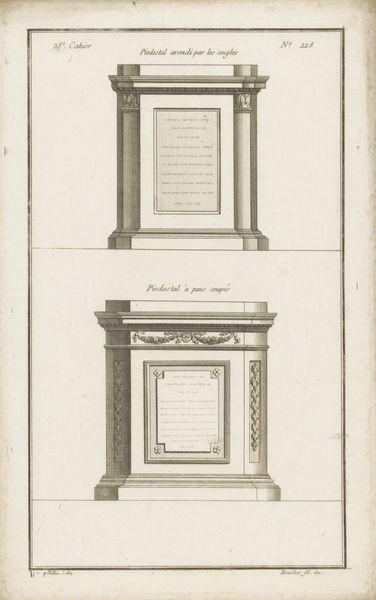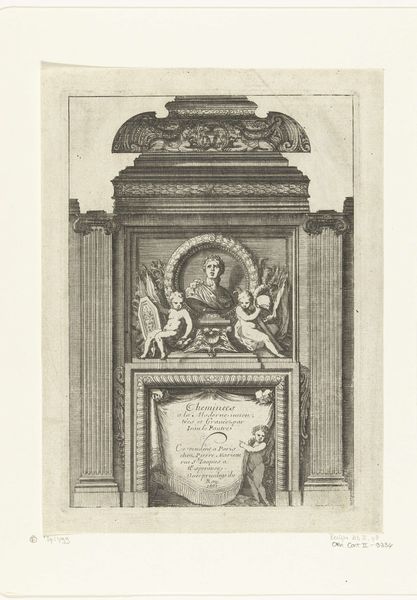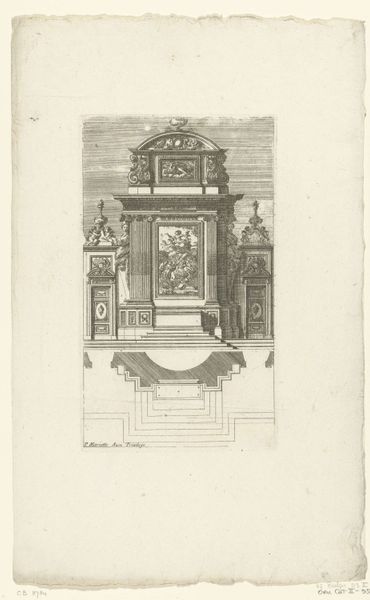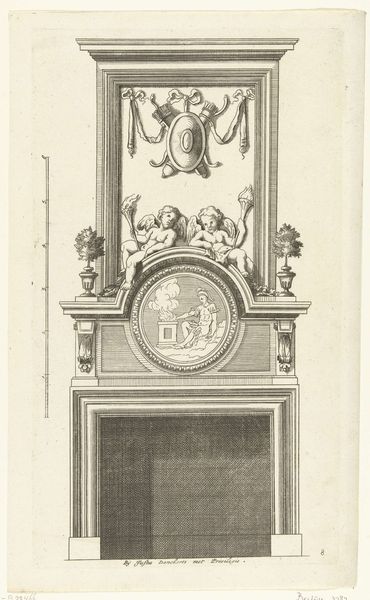
drawing, print, engraving, architecture
#
drawing
#
aged paper
#
baroque
# print
#
old engraving style
#
form
#
old-timey
#
line
#
decorative-art
#
engraving
#
architecture
Dimensions: height 260 mm, width 148 mm
Copyright: Rijks Museum: Open Domain
Editor: Here we have Cornelis Danckerts' print, "Titelblad: Verschyde Schoorsteen Mantels," dating back to the late 17th century. It’s a rather ornate depiction of a mantelpiece. What do you see when you examine its form? Curator: Primarily, I observe a clear hierarchy established through compositional structure. The design divides into three distinct horizontal registers, each delineated by strong lines and shifts in decorative density. This creates a balanced yet formal presentation of the subject. Editor: It’s interesting that you focus on that. What is the impact of using prints for architectural drawings? Curator: Prints allow for the precise reproduction and dissemination of designs. In this case, it's the lines and textures. Notice how line work creates depth, especially in the depiction of the marble and foliage. What do you make of the contrast between the detailed carving and the plain background? Editor: Well, that seems strategic to me, guiding my eye right to the architecture! Does the oval in the composition reinforce your hierarchy? Curator: Indeed. The oval cartouche, centrally positioned, acts as a focal point. Its placement within the upper register further reinforces the structured organization inherent within Baroque design principles. It contributes to the reading and appreciation of design, don’t you agree? Editor: I see what you mean, the symmetry, the clear sections... it’s all about presenting the design clearly, ready for execution. Curator: Precisely. Focusing on these internal relationships helps us move away from pure representation toward an understanding of the underlying design philosophy at play. Editor: I learned more about what to look for and appreciate about it!
Comments
No comments
Be the first to comment and join the conversation on the ultimate creative platform.
